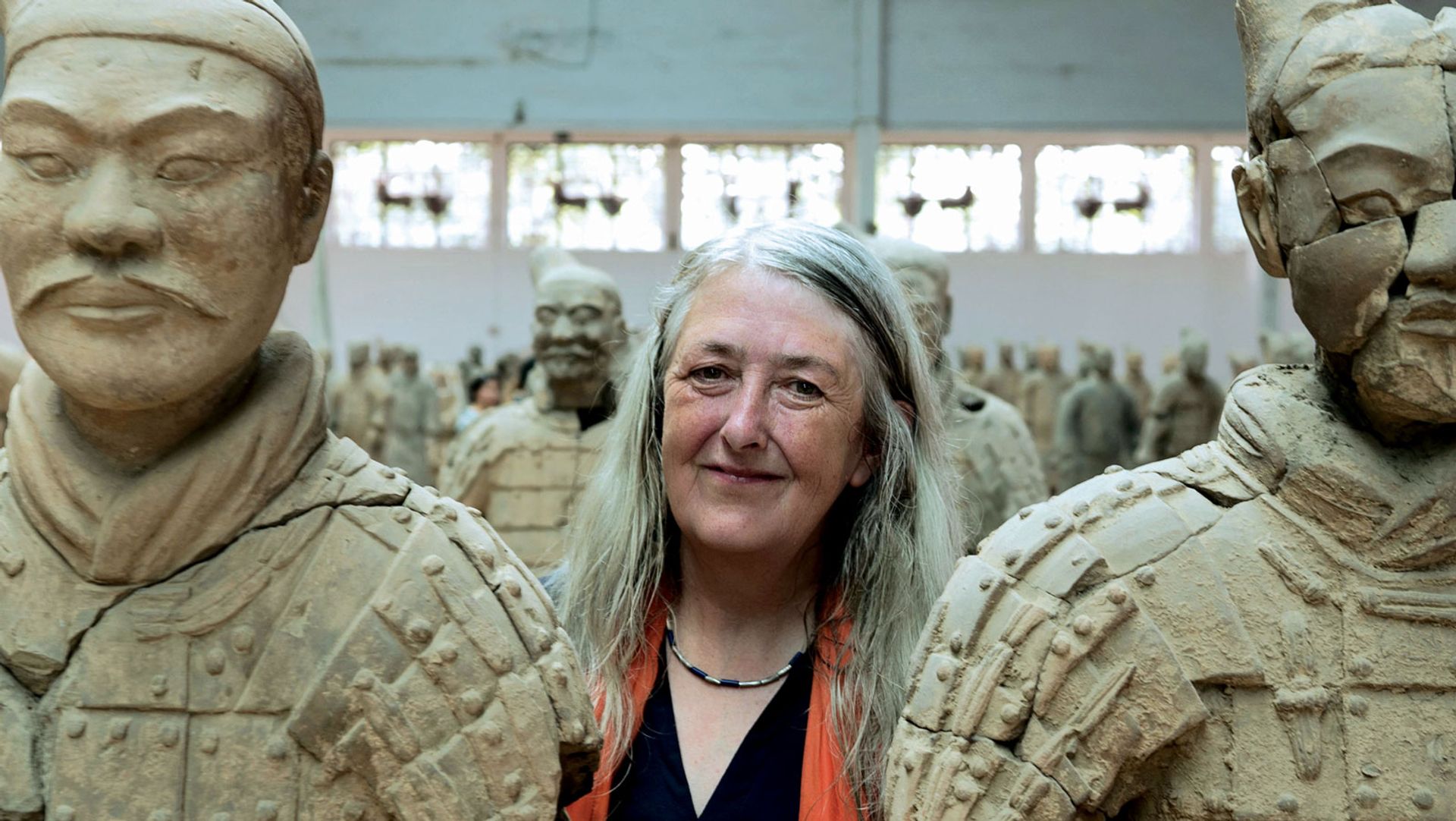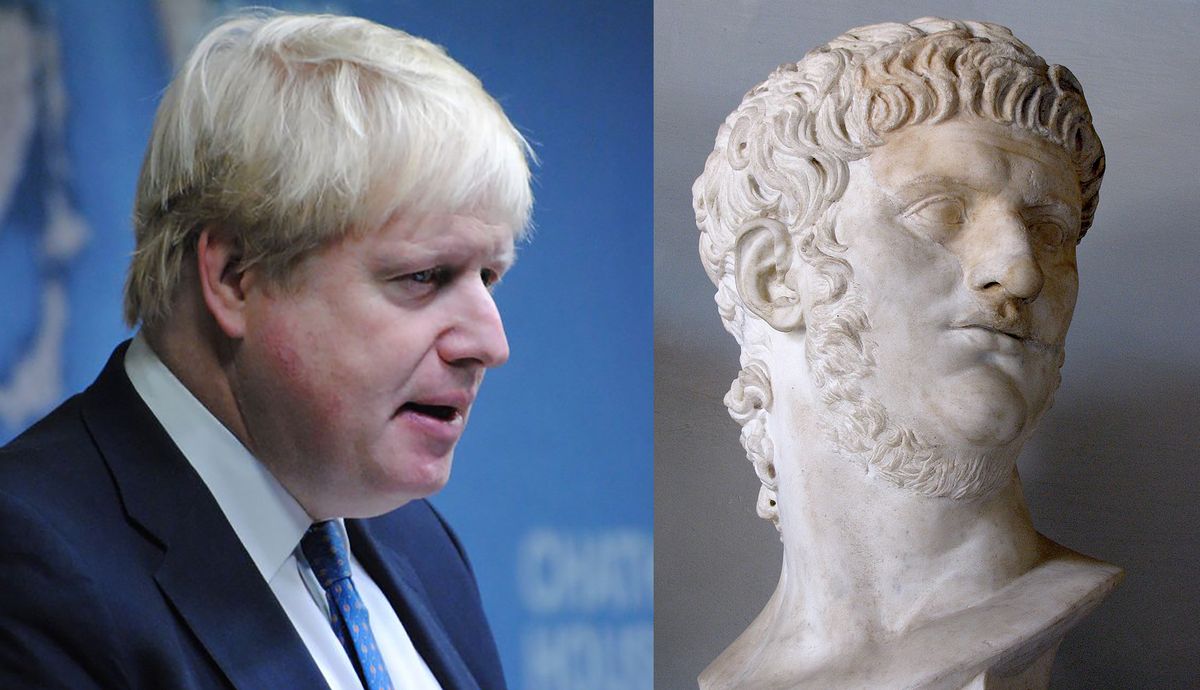The world may be gaping in astonishment at the mess the UK is making with Brexit, but in the arts it can still hack it. Nearly half of this week’s Emmy awards went to British TV programmes, and Mary Beard, a professor of classics at Cambridge university who is one of the UK’s most distinguished academics and a household name because of her TV programmes, has won the J. Paul Getty Trust’s highest accolade, the J. Paul Getty Medal, together with the US artists Ed Ruscha and Lorna Simpson.
Neil MacGregor, the former director of the British Museum and himself a broadcasting star, was invited to make the presentation on 16 September and he told The Art Newspaper, “Mary has found ways of engaging a new generation and world-wide public with the ideas and ideals that have shaped both ancient Rome and modern Europe. She believes that we can’t understand ourselves unless we understand them. When she leads us into Roman politics, we realise what it means to watch fundamental political conventions dissolve”.
Mary Beard has challenged the assumptions of art historian Kenneth Clark in her 2018 remake of Civilisation on the BBC and in an imminent TV series about nakedness in art, but because she is also an energetic, if courteous, political commentator and the question of what is truth is so hot today, The Art Newspaper decided to interview her instead on what antiquity had to say about lying politicians and democracy.

Mary Beard in Civilisations (2018) Nutopia
Are we alert enough to whether politicians are lying to us?
Mary Beard: It’s one of the reasons why we have to pay attention to the long history of debate dating back to the ancient world. Really important thoughts come out of Graeco-Roman antiquity about how you debate politics, what counts as truth, how you judge somebody from the way they speak and what the very nature of persuasion is.
The comedies of Aristophanes, for example, in the middle to late fifth century BC raise the issue of what happens when someone makes a bad argument sound like a good one; what is the responsibility of the public speaker, and is rhetoric—how you frame your argument to be persuasive—a dangerous thing. We’ve never needed some of these debates of the ancient Greeks and Romans more than now.
Cicero was deeply worried by the way the public speaker gets up to perform: what’s the difference between the public rhetorician and, in his terms, a common or garden actor; where does authority lie?
The historian Tacitus was wryly cynical when Nero gave his first speech because it was the first ever by a Roman emperor to have been written by someone else—“borrowed words,” said Tacitus. There was a whole set of connections between you, your sincerity, your authenticity, what you said, how you were judged and about its truth.
Did they worry about how the people could be misled and the moral responsibility of speakers not to mislead them?
Yes. Opponents of Athenian democracy in the fifth century BC—and most of the literature we have about Athenian democracy deplored it —worried about precisely this: if you can’t trust the rhetorician because he will sway the mob—their word—to take a decision on any number of false premises, how far does this undermine democracy?
The great example of this is during Athens’ great war against Sparta in the second half of the fifth century, when the people were persuaded to send an expedition to Sicily, which was one of the bread-baskets of the Mediterranean. This was supposed to bring Athens the resources it needed to defeat Sparta, but it was a total disaster and brought about Athens’ defeat.
That incident was often remembered as an example of how glib, rhetorically specious speeches by political figures persuaded an ignorant populace to take a decision that was very stupid. And there are obvious parallels, I have to say, with today.
Is this why you comment a lot on Twitter and in your blog on contemporary politics?
I think we are going in a difficult direction. What bothers me, and this goes back to debates that have been going on for thousands of years, is how we define democracy. We all worship democracy; every time you want to criticise someone’s point of view, you say, “That is very undemocratic”, but we say it in a sloganising way that hasn’t remotely begun to face up to the complexities of what a modern democratic process is.
It’s one thing to say that, for better or worse—and I think for the better—democracy is the form of government we want, but it doesn’t mean we know what democracy is. It doesn’t start to debate what counts as a democratic decision, who is included in making the decision.
Often I think that in the popular media, democracy comes down to a vote, democracy equals the ballot box. Critics in antiquity would see through that at once. They would say, it’s no good voting if you haven’t got the information and the education with which to make a responsible decision about what you are voting on.
Of course, one has to be careful about that argument because part of it leads to a nasty Platonic republic in which only the clever philosophers are allowed to vote at all and so it’s a difficult case to argue, but if you say a democratic decision is not worth the paper it is written on if the information on which to base that decision was not available to every voter, that does not count as democracy.
There is no single definition of democracy. It’s a hard won process; it’s harder work than any other political system; it’s not a thing you either have or you haven’t. The benefits are enormous, of course, but you can’t be blind to the difficulties you have to struggle with to get a good democracy.
You have nearly 234,000 followers on Twitter, which has brought you gross insults, many of a sexist, even violent sort. Have you had any debates in which you think you have moved matters forward?
On social media, it’s very difficult to spot whether you have achieved anything, but I wouldn’t stay on Twitter if I didn’t think it’s part of an important debate that sometimes makes people think differently. It’s not affecting how people vote; it’s more at the individual level. It’s some guy writing, “I’m sorry, I didn’t read what you said properly, I made a bit of a fool of myself”. I try to remain polite and reasonable, although I do allow myself to get cross sometimes. No one is saying that everybody has to agree all the time, so I think you do most good by setting a tone for how debate can be conducted.


